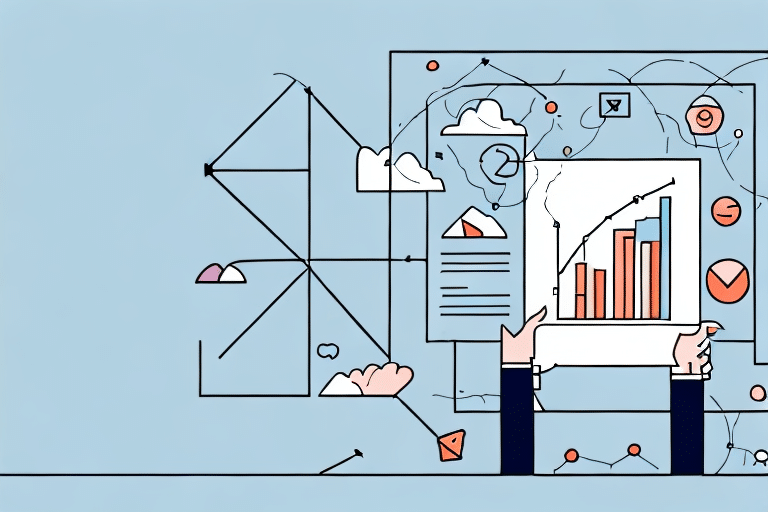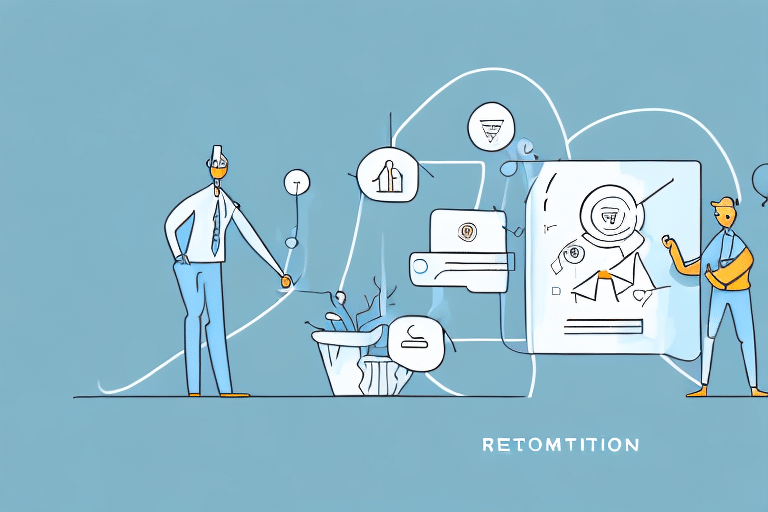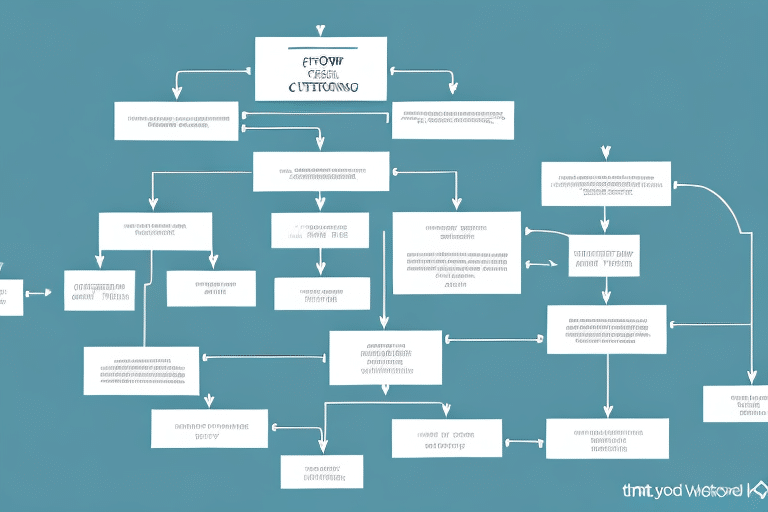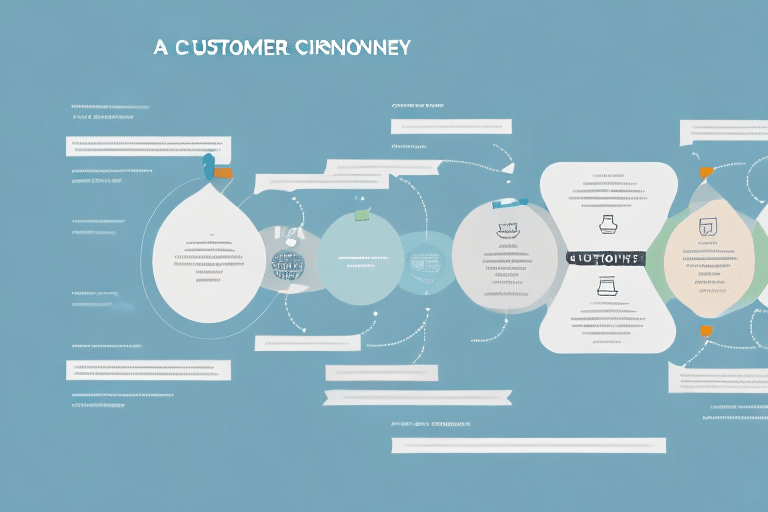The Benefits of Implementing a CRM System for Your Business
Are you looking for a way to streamline your sales process, improve customer retention and loyalty, and boost your business productivity? If so, implementing a Customer Relationship Management (CRM) system might be just what you need. In this comprehensive guide, we will explore the benefits of implementing a CRM system for your business, as well as the key features, trends, and best practices to keep in mind.
Understanding CRM: What Is It and How Does It Work?
At its core, a CRM system is a technology platform that helps businesses manage their interactions with customers and prospects. By centralizing customer data from multiple sources, including social media, email, phone calls, and website visits, a CRM system allows businesses to gain a 360-degree view of their customers and engage with them more effectively.
The key features of a CRM system typically include:
- Contact management
- Sales automation
- Marketing automation
- Customer service
- Analytics and reporting
- Integrations with other business tools such as email marketing, content management, and project management
One of the main benefits of using a CRM system is that it can help businesses improve their customer retention rates. By having a complete view of each customer's interactions with the business, including their preferences and purchase history, businesses can tailor their marketing and sales efforts to better meet the needs of each individual customer. This personalized approach can lead to increased customer satisfaction and loyalty, ultimately resulting in higher retention rates and increased revenue for the business.
The Evolution of CRM Systems: From Contact Management to Sales Enablement
CRM systems have come a long way since their inception in the 1990s, when they were primarily used for contact management. Today's CRM systems have evolved into powerful sales enablement tools that help businesses manage and track their entire sales process, from lead generation to customer acquisition to post-sale support and retention.
One of the key drivers of this evolution has been the rise of cloud computing and mobile technology, which have made it easier and more affordable for businesses of all sizes to access and use CRM systems. As a result, the CRM software market has grown rapidly in recent years, with a wide range of vendors offering solutions for different industries and business needs.
Another factor that has contributed to the evolution of CRM systems is the increasing importance of data analytics in business decision-making. Modern CRM systems are equipped with advanced analytics tools that allow businesses to gain insights into customer behavior, preferences, and needs. This data can be used to personalize marketing campaigns, improve customer service, and identify new sales opportunities.
How a CRM System Can Help You Streamline Your Sales Process
One of the biggest benefits of a CRM system is its ability to streamline your sales process and improve your team's productivity. By automating routine tasks such as lead capture, qualification, and follow-up, a CRM system can free up your sales reps to focus on more strategic activities such as closing deals and building relationships.
Other ways that a CRM system can help you streamline your sales process include:
- Providing real-time access to sales data and analytics, allowing you to make data-driven decisions and optimize your sales strategy
- Automating your sales pipeline and forecasting, helping you to stay on top of your sales targets and identify potential bottlenecks or opportunities
- Enabling collaboration and communication among your sales and marketing teams, allowing them to work together more effectively and align their efforts towards common goals
Another benefit of a CRM system is its ability to improve customer retention. By tracking customer interactions and preferences, a CRM system can help you identify opportunities to upsell or cross-sell products and services, as well as anticipate and address any potential issues or concerns before they become major problems.
Additionally, a CRM system can help you personalize your sales and marketing efforts. By segmenting your customer base and tailoring your messaging and offers to their specific needs and interests, you can increase the effectiveness of your campaigns and build stronger relationships with your customers.
Why a CRM System Is Essential for Customer Retention and Loyalty
In addition to improving your sales process, a CRM system can also help you retain customers and build long-term loyalty. By capturing and analyzing customer data across multiple touchpoints, a CRM system can give you insights into customer behavior, preferences, and needs, enabling you to offer personalized experiences and support.
Other ways that a CRM system can contribute to customer retention and loyalty include:
- Providing a single source of truth for customer information, enabling you to respond more quickly and efficiently to customer requests and inquiries
- Tracking customer interactions and feedback, allowing you to identify and address issues proactively and improve your customer service and support
- Enabling targeted marketing and sales campaigns based on customer segments, preferences, and behavior, increasing the relevance and effectiveness of your messaging
Another benefit of a CRM system is that it can help you identify and reward your most loyal customers. By tracking customer behavior and purchase history, you can identify customers who consistently engage with your brand and make repeat purchases. You can then offer these customers exclusive discounts, promotions, or other incentives to encourage them to continue doing business with you.
Additionally, a CRM system can help you stay top-of-mind with your customers by automating personalized follow-up communications. For example, you can set up automated emails or text messages to thank customers for their purchase, offer additional product recommendations, or remind them of upcoming sales or events. These personalized communications can help strengthen the relationship between your brand and your customers, keeping them coming back for more.
Boosting Your Business Productivity with a CRM System
By enabling you to automate routine tasks, streamline your sales and marketing processes, and improve your customer retention and loyalty, a CRM system can also boost your overall business productivity and profitability.
Some of the ways that a CRM system can boost your business productivity include:
- Reducing manual work and data entry, freeing up your employees to focus on higher-value activities such as innovation and strategic planning
- Improving cross-functional collaboration and communication, allowing your teams to work more effectively together and share information and knowledge
- Providing real-time insights and analytics, enabling you to make informed decisions and optimize your business processes for maximum efficiency and ROI
Another way that a CRM system can boost your business productivity is by providing a centralized database of customer information. This allows your employees to access important customer data quickly and easily, without having to search through multiple systems or files. This can save time and improve the accuracy of customer interactions, leading to increased customer satisfaction and loyalty.
In addition, a CRM system can help you identify and prioritize your most valuable customers. By analyzing customer data and behavior, you can segment your customer base and target your marketing and sales efforts more effectively. This can lead to higher conversion rates and increased revenue per customer.
Choosing the Right CRM System for Your Business Needs
With so many CRM vendors and solutions available on the market, choosing the right one for your business can be a daunting task. To help you make an informed decision, it's important to evaluate your business needs and goals, as well as the features and functionalities that are most important to you.
Here are some factors to consider when selecting a CRM system:
- Size and complexity of your business
- Type and volume of customer interactions
- Number and location of your employees and customers
- Budget and pricing models
- Integration with other business tools and systems
Integrating a CRM System with Other Business Tools for Optimal Efficiency
While a CRM system can bring significant benefits to your business on its own, its power is amplified when integrated with other key business tools and systems such as email marketing, content management, project management, and accounting.
Integrating your CRM system with other tools can help you streamline your workflows, reduce data silos, and improve your overall business productivity and performance. Some of the most popular CRM integrations include:
- Email marketing tools such as Mailchimp, Constant Contact, and HubSpot
- Content management tools such as WordPress, Drupal, and Joomla
- Project management tools such as Asana, Trello, and Basecamp
- Accounting tools such as QuickBooks, Xero, and FreshBooks
Avoiding Common Pitfalls When Implementing a CRM System
Implementing a CRM system can bring significant benefits to your business, but it can also be a complex and challenging process. To ensure a successful implementation, it's important to avoid some common pitfalls such as:
- Not defining clear goals and objectives for your CRM implementation
- Choosing the wrong CRM system for your business needs
- Not involving key stakeholders and employees in the implementation process
- Not providing adequate training and support to your team
- Not measuring and tracking the ROI of your CRM system
Measuring the ROI of Your CRM Implementation: What Metrics Matter?
Measuring the ROI of your CRM system is essential to determining its effectiveness and making data-driven decisions. Here are some key metrics to consider:
- Lead conversion rate
- Revenue growth and customer lifetime value
- Sales pipeline velocity and win rate
- Customer satisfaction and retention
- Marketing and sales campaign ROI
Future Trends in CRM: What to Look Out For in 2024 and Beyond
As technology continues to evolve and customer expectations continue to rise, the CRM landscape is constantly changing. Here are some trends to keep an eye on in 2024 and beyond:
- AI and machine learning-powered CRM systems that can automate routine tasks and provide personalized customer experiences
- Mobile-first and cloud-native CRM systems that enable real-time access and collaboration from anywhere, anytime
- CRM systems that integrate with social media and other emerging channels to capture and analyze customer insights and feedback
- Increased focus on data privacy and security to comply with global regulations and build customer trust
Case Studies: How Businesses Leveraged CRM Systems to Achieve Success
Finally, to showcase the real-world benefits of implementing a CRM system, here are some examples of how businesses across different industries and sizes have used CRM systems to achieve success:
- A healthcare provider uses a CRM system to centralize patient data and improve patient satisfaction and engagement.
- An e-commerce retailer uses a CRM system to personalize its marketing and sales campaigns and increase customer retention and loyalty.
- A manufacturing company uses a CRM system to automate its sales pipeline and improve its forecasting and inventory management.
In conclusion, implementing a CRM system can bring significant benefits to your business, including streamlined sales processes, improved customer retention and loyalty, and increased productivity and profitability. By choosing the right system, avoiding common pitfalls, and measuring the right metrics, you can maximize the ROI of your CRM investment and stay ahead of the competition.








